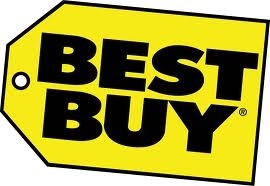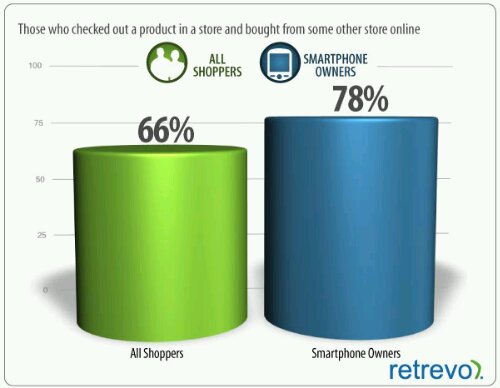Maybe it’s the health of my two boys, maybe it’s the sparkly lights and inescapable sound of sleigh bells…maybe it’s the hot buttered rum (hiccup!). Whatever the cause, I’m feeling particularly generous this holiday season and am going to give you some entrepreneurial coaching for free. Stop worrying about what to buy your clients, employees, or investors. Here are seven fantastic items you, or the serial entrepreneurs and startups in your life, need now. As a serial founder, entrepreneurial coach, and an avowed tech junkie, each product below has been used, abused, and approved by moi.
- The Lean Startup by Eric Ries. The Lean Startup: How Today’s Entrepreneurs Use Continuous Innovation to Create Radically Successful Businesses is a MUST for any entrepreneur, and really any manager who wants to work more effectively in an innovative organizational culture. Full of practical advice and case studies, Eric Ries creates a blueprint for allocating resources as efficiently as possible, suggests actionable ways to avoid product failures, and science-based methods to thoughtfully evaluate whether to persevere or to pivot. There is truly no better guide to improve the odds of a startup’s success. Furthermore, you’re going to need the vocabulary in this book to converse with other ‘treps, so get it!
- Google Apps. I have founded dozens of startup companies with only Google Apps as my IT infrastructure (literally). Google Apps for Work provides a variety of Google’s web productivity tools at a price point that is affordable for even the smallest budget. Since it your domain name, each application within the suite (Gmail, Google Calendar, Hangouts, Drive, Docs, Sites, etc.) is independently customizable to put your best collaborative (and branded) foot forward.
- LastPass. I refer to the years before I started using LastPass as the Dark Ages. Just think of all the time I wasted trying to remember every single login and password (or, gasp, using the same password on every site)! LastPass Password Manager is a convenient program to help you keep all of your login information secure without having to memorize it. I create really long, esoteric passwords for all my accounts and use the Share feature to share them with my Virtual Assistant (see #5 below). Delegation with security is a critical feature of my productivity.
- Freshbooks. If you want to make money (and you do), you have to bill your clients. Freshbooks does this easier and better than any other. There are a lot of online invoicing services out there, but none provide such ease of use on the important tactical tasks like invoicing and expense billing. I love the thing, especially on mobile. Sure it can create customized invoices and quotes, but the real genius of Freshbooks is in the extensibility. Don’t believe me? Here’s what Kathy Yakal at PCMag.com thinks, “Besides a host of add-ons, it integrates data with sites like Outright (Free, 3 stars). It incorporates time-tracking and support tickets, and it lets you upload documents to a shared area, something competitors don’t do. Basically, it does everything that everyone else does, and a lot more. Multiple subscription levels are available, ranging from free (three clients, unlimited invoices) to $39.95/month (unlimited clients and invoices).” You’ll want to pay for it just to get recurring invoices which saves a ton of time. Being able to see who owes you money, who has viewed your invoices, and quickly being able to mark who has paid is awesome. The graphs of your revenue are great, too.
- A Virtual Assistant. Without Ellen, my Virtual Assistant (VA), I would be a hamster stuck endlessly running in my wheel. Sure I’d be working hard, but I wouldn’t be getting anywhere. Virtual assistants are particularly well-suited for startup CEOs and serial founders because they’re easily reachable and are paid only for time spent on task; talk about using resources efficiently! With virtual assistants there is no overhead: no office space, no benefits to cover, no sticky HR policies, and on. I interviewed seven different agencies and went with Worldwide101.com. Check ‘em out and decrease your workload as a gift to yourself! I’m not kidding — Ellen pays my bills, orders clothing for my kids, and schedules all of my meetings. It saves me TONS of time and doesn’t break the bank. Do it!
- A sit/stand desk for better ergonomics. If you’ve paid any attention to health news over the last few years, you’ve by no doubt heard that sitting day in and day out at a desk is more detrimental to your health than smoking cigarettes. Fortunately, even if you need to be tethered to your computer for your business to be successful, there is something you can do. About two years ago I bought a sit/stand desk and have never looked back. It’s pricey but it’s amazing. I can crank the desk up and down and I have multiple monitors for making my work easy to see. I’m the envy of the office.
- Voxer. Back in the day, I admired the direct connect capability of Nextel phones, but man was that beep annoying! Enter Voxer. Voxer is a push to talk (PTT) free app for your smartphone that improves team communication, regardless of whether your crew goes iPhone, Droid, or Galaxy. Voxer offers its trademark walkie talkie function, but also includes a text function, a group chat (perfect for telling multiple people you’re running late), and the ability to save those walkie talkie audio messages for later listening (on the Pro plan). Have a colleague who can’t help herself from dropping the eff bomb (mine is a consultant living way up in Maine)? No worries. You can opt to disable the speakerphone function so you only listen to audio messages like a phone call. The ability to do asynchronous voice communication has saved me so much time and effort. It’s perfect for remote teams.




